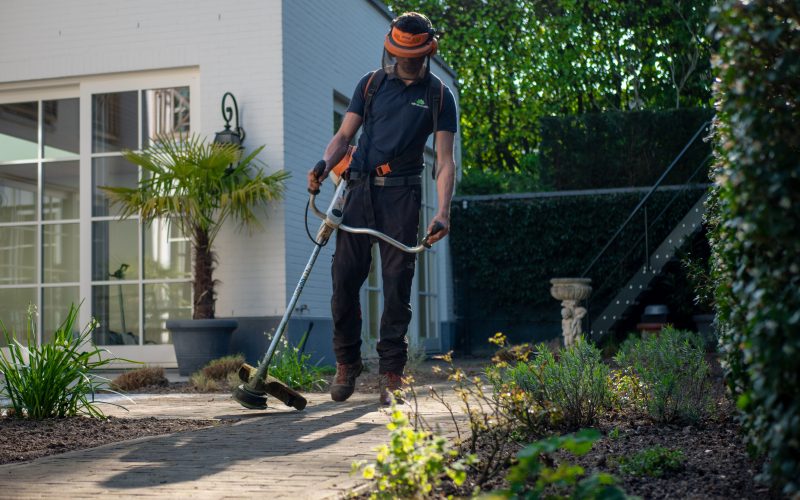Are you looking to create a garden that is not only beautiful but also eco-friendly? With the world becoming more conscious about sustainability, it’s time for homeowners to take action too. A sustainable garden can provide numerous benefits such as reducing carbon footprint and promoting biodiversity. In this blog post, we’ll discuss ten ways to create a sustainable garden with eco-friendly tips that will help you transform your outdoor space into an environmentally friendly paradise! So let’s get started!
Planning Your Garden
Planning is the first step to creating a sustainable garden. Start by considering your available space, soil type, and climate conditions. Take note of any existing plants or structures that you want to keep or remove.
Next, decide on the purpose of your garden. Do you want it to be a vegetable garden, flower garden, or both? Consider the amount of sunlight and water your plants will need before choosing where to plant them.
Another important aspect of planning is selecting the right gardening tools and equipment. Opt for eco-friendly tools such as hand-operated ones that don’t require electricity or gas-powered engines which produce harmful emissions.
It’s also essential to plan for irrigation methods that conserve water usage. Drip irrigation systems are effective in minimizing waste and ensuring that plants receive adequate moisture at their roots without over-saturating the soil.
Don’t forget about composting! Implementing a compost bin in your backyard can help reduce waste while simultaneously producing nutrient-rich fertilizer for your garden’s soil. By incorporating these planning tips into your gardening routine, you’ll be taking an important step towards creating an eco-friendly outdoor oasis!
Choosing the Right Plants for Your Garden
Choosing the right plants for your garden is crucial in creating a sustainable and eco-friendly outdoor space. It’s important to select plants that are native to your area, as they require less maintenance and pesticides. Native plants also provide habitats for beneficial insects and wildlife.
Consider planting a variety of flowers, herbs, and vegetables that bloom at different times throughout the year. This will not only add visual interest to your garden but also attract pollinators such as bees, butterflies, and hummingbirds.
Before selecting any plant species, it’s essential to understand its water requirements. Choose drought-tolerant plants or those that only need small amounts of water if you live in an area with limited rainfall or experience regular droughts.
Furthermore, opt for organic seeds or transplants instead of genetically modified ones. They are safer for human consumption and contribute positively to soil health by encouraging microbial growth.
Make sure you have enough space before adding larger trees or shrubs into your garden bed. Overcrowding can lead to competition for resources such as sunlight and nutrients; hence it is crucial always to consider spacing when selecting the best plant varieties suited for your home garden.
Making Your Garden More Sustainable
Making Your Garden More Sustainable
Creating a sustainable garden is not only beneficial for the environment, but it also saves you money and time in the long run. Here are some tips to make your garden more sustainable:
1) Collect Rainwater: Instead of using tap water, use rainwater to water your plants. It’s free and reduces your water usage.
2) Use Organic Fertilizers: Chemical fertilizers harm the soil and can damage plant roots. Use organic fertilizers like compost or manure instead.
3) Plant Native Species: When planting new plants, choose native species as they require less maintenance and resources such as water.
4) Composting: Set up a compost bin to recycle food scraps, leaves, and grass clippings into nutrient-rich soil that can be used in your garden.
5) Natural Pest Control Methods: Avoid pesticides by using natural pest control methods such as companion planting or introducing beneficial insects like ladybugs into your garden.
6) Reduce Lawn Size: Lawns consume a lot of resources such as fertilizer, mowing fuel, and watering. Consider reducing the size of your lawn or replacing it with low-maintenance groundcovers or gardens filled with native species.
By implementing these simple changes in your gardening routine, you can create a more sustainable garden that benefits both you and the environment!
Controlling Lawn Pests with Bacillus Thuringiensis (BT)
One of the biggest challenges that gardeners face is dealing with pests that damage their lawn. Unfortunately, many traditional pesticides contain harmful chemicals that can be toxic to humans and wildlife. That’s where Bacillus Thuringiensis (BT) comes in as a safer alternative.
BT is a naturally occurring bacteria found in soil that acts as an organic pesticide. It works by producing toxins that are fatal to certain insects, such as caterpillars, while remaining harmless to other creatures.
To use BT on your lawn, simply mix it with water according to the package instructions and spray it on affected areas. The bacteria will infect the pests’ digestive systems once ingested, causing them to stop feeding and eventually die off.
One of the benefits of using BT is its specificity – it only targets certain insects rather than harming all bugs indiscriminately. This means beneficial insects like bees and ladybugs won’t be harmed while you control pest populations.
Incorporating BT into your pest management strategy can help create a healthier ecosystem within your garden while keeping unwanted pests at bay without resorting to harsh chemicals.
Mulching and Weeding
Mulching and weeding are two simple yet effective ways to create a sustainable garden. Mulching involves spreading organic materials like leaves, straw, and grass clippings around the base of plants to retain moisture and suppress weed growth. This helps reduce water usage while also eliminating the need for harmful chemical herbicides.
One of the biggest benefits of mulching is that it provides insulation for your soil during hot summer months, preventing it from drying out too quickly. It also helps regulate soil temperature in colder temperatures by keeping heat trapped near plant roots.
Weeding can be a tedious task, but it’s crucial in maintaining a healthy garden without resorting to toxic chemicals. Pull weeds regularly before they have time to go to seed or spread throughout the garden. By removing weeds manually rather than using herbicides, you’re also reducing runoff into nearby bodies of water.
In addition to manual weeding, there are many natural alternatives available such as vinegar-based weed killers or boiling water poured directly on weeds growing in between cracks on hardscaping surfaces like driveways or patios.
Mulching and weeding offer an easy way to create a more sustainable garden while promoting overall health for your plants and surrounding environment.
Conclusion
Creating a sustainable garden is not only good for the environment but also beneficial for you as a homeowner. By following these eco-friendly tips, you can create a beautiful outdoor space that supports local wildlife and promotes healthy soil.
Remember to plan your garden carefully, choosing plants that are well-suited to your climate and soil type. Incorporate sustainable practices such as composting, mulching, and natural pest control methods like Bacillus Thuringiensis (BT). And finally, make sure to weed regularly to prevent invasive species from taking over.
By doing all of this, you’ll be able to enjoy your garden for years to come while helping protect the planet at the same time. So get out there and start building your own sustainable oasis today!











